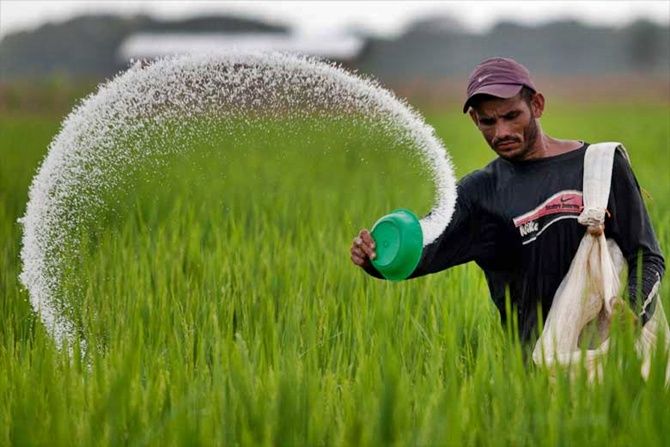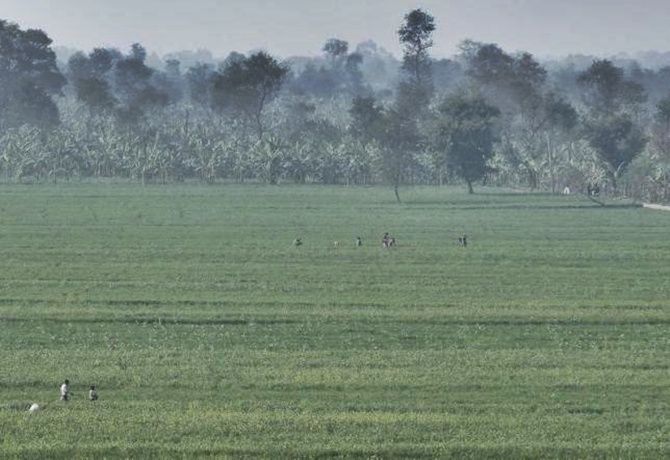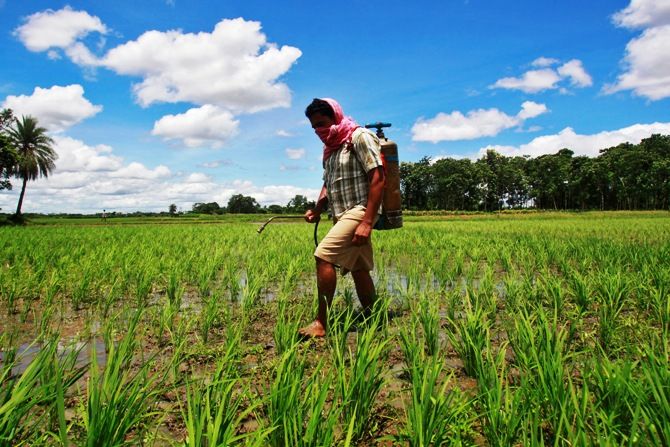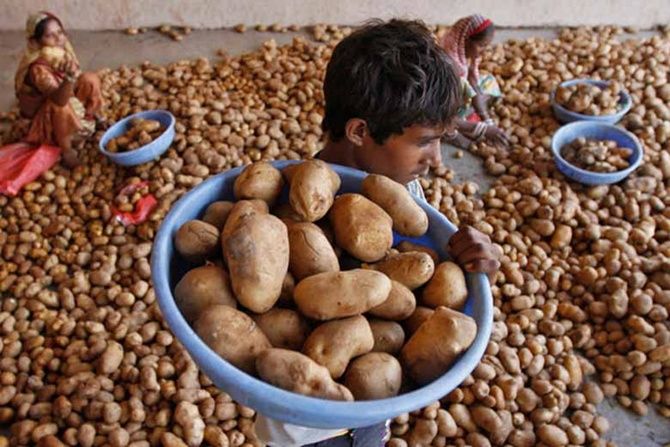Farmers find it difficult to source quality seeds or fertiliser on time from government agencies at subsidised rates.

Baldev Prasad Mandal, a native of Painathi panchayat in Bihar's Patna district, sold 250 quintals of rice to the village-based primary agriculture credit societies (PACS), an agency responsible for procuring foodgrain directly from farmers at the rate of Rs 1,660 a quintal in March this year.
Even as the new kharif season is about to begin, Mandal is one of the many farmers in the state who are yet to receive payment for the produce sold more than three months ago.
According to media reports, government agencies owe nearly Rs 1,200 crore (Rs 12 billion) to farmers for the foodgrain procured in the last kharif season.

Considerable delay in getting payment for what he has sold is not the only problem Mandal faces.
"We all have switched to hybrid seeds of high yield varieties for both rabi and kharif crops. They are supposed to be made available to us by government agencies at the block level. But we never get them on time. As a result, we are forced to buy them from the market at a premium," says Mandal.
Mandal is not the only one who finds it hard to source quality seeds or fertiliser on time from government agencies at subsidized rate.
A number of villagers this reporter spoke to in two blocks-Bikram and Bihta- of Patna district and a number of farmers in villages near the town of Harnaut in Nalanda district are facing similar problems.
"There is a provision of subsidy on diesel also. I can tell you that not many farmers actually get it. These schemes just exist on paper. We are still dependent on rains for irrigation and market for seeds and fertiliser," says Ashok Singh, an influential farmer in Bhadsara village in Patna district.
"There are three key components of what you call green revolution-water, seed and fertiliser. Nothing has changed in the state on either of these counts," argues NK Chaudhary, economist and principal of PatnaCollege.
Even macro numbers seem to suggest that the pronouncement of second green revolution in the east is yet to become a reality, at least in Bihar.
On almost all parameters, the situation has either remained the same or has deteriorated somewhat after the talk of second green revolution in eastern states got louder.
The production of rice, for instance, has fallen from 82 lakh tonnes in 2011-12 to 66 lakh tonnes in 2013-14. Similarly, the production of wheat has fallen from 65 lakh tonnes to 61 lakh tonnes in the same period. Only the production of pulses has grown marginally in this period.

Worse, even the productivity has declined in the case of rice and wheat during this period. Even the production of mango, litchi and banana, three major fruits of the state, has remained static in this period.
However, the state did make significant productivity gains from 2005-06 to 2011-12. The productivity of rice, which averaged at 1,284 kg a hectare between 2005 and 2008 rose to 2,463 kg a hectare in 2011-12.

The growth seems to have stagnated after that. Incidentally, the talk of second green revolution had started around 2010.
A sum of Rs 400 crore (Rs 4 billion) was sanctioned in the Union Budget 2011-12 for the programme to bring green revolution in these states. The allocation was hiked in subsequent years.
The only consolation for Bihar though is that both the production and productivity of potato and onion has seen some improvement from 2011-12 to 2013-14, according to Bihar's economic survey, 2014-15.

There are examples of farmers in some areas adopting innovative techniques to grow vegetables with considerable success.
One such example is of Rakesh Kumar of Sohdi village in Nalanda district. He took to organic farming in 2009 at the behest of National Horticulture Mission. He along with 20 other farmers of the village started growing vegetables by using vermi compost.
"When we hit the market with our first crop, we got the price of Rs 8 for one cauliflower whereas other growers using traditional methods could get only Rs 2. That was when other farmers took to organic farming in a big way," says Rakesh Kumar, while sitting in his godown-cum-office.
Now he heads Nalanda Organic Vegetable Growers' Association, an apex body of 105 farmers' groups. The federation makes bulk purchases of key inputs like compost and pesticide and offers other assistance to farmers associated with the federation.

Rakesh says now the adoption of organic farming is growing rapidly in Nalanda, Patna, Vaishali and Gaya districts. "While our input cost has gone down by nearly 20 per cent, the price that we get is substantially higher. And there is no drop in productivity," says Rakesh, considered a celebrity farmer in the area given the kind of visitors he receives.
Few bright spots aside, many farmers even in Nalanda district say that despite growing talks of second green revolution in the east, there is no concerted effort to introduce modern techniques in farming.
"The government organises krishi melas (agri fests) in various localities of the district to showcase latest agri equipment. What we have noticed is that agri implements showcased there are costlier than the prevailing market rate which is unbelievable," says Triveni Kumar of Mubarakpur village in Nalanda district.
Fellow farmers Arun Kumar Sinha and Tribhuvan Prasad concur with Triveni's views.












 © 2025
© 2025